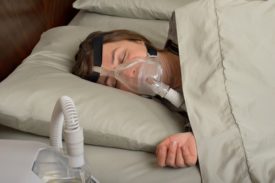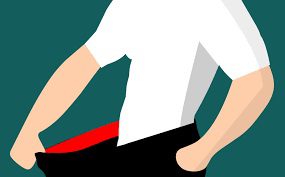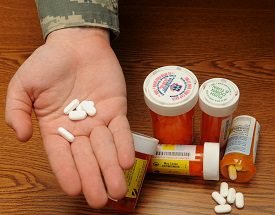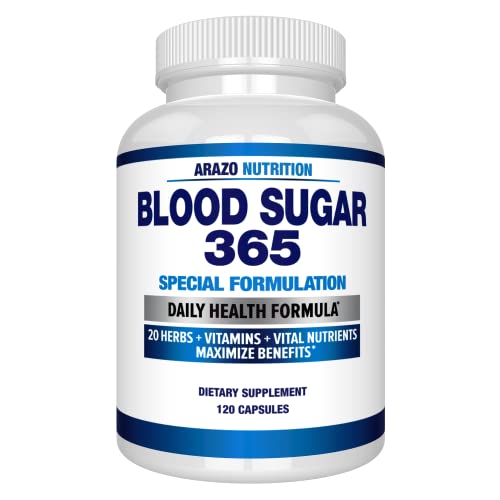We need to learn how diabetes can cause sleep apnea. People with diabetes often have poor sleeping habits, including difficulty falling asleep or staying asleep. Some people with diabetes sleep too much, while others have trouble with adequate sleep. According to the National Sleep Foundation, 63% of American adults do not sleep enough to ensure their health, safety, and optimal performance. Can Diabetes Cause Sleep Apnea?

Diabetes and Sleep Apnea
People with type 2 diabetes have different causes of sleep problems, including obstructive sleep apnea, pain or discomfort, restless legs syndrome, going to the bathroom and other problems that are related to type 2 diabetes.
More and more people who are snoring have type 2 diabetes. The analysis shows that these two different circumstances have close relationships and that this should not be surprising.
Sleep apnea and diabetes often affect people with obesity, although not all people with apnea or diabetes are obese. Doctors agree that both are related to the body’s metabolism.
Sleep apnea and type 2 diabetes are two conditions that are hard to live with. And the worst part is that you can have type 2 diabetes and have sleep apnea that is obstructive, both without knowing it.
If you have type 2 diabetes, you are in a state of insulin resistance. There is no known cure for it. Diabetes and sleep apnea have this in common. We really need to address this because sleep is so important for you.
Obstructive Sleep Apnea, Silent Killer
One third of men who have type 2 diabetes, also have this sleep disorder. In the case of men over age 60, this number relates to almost 2/3. The number of women is smaller, about half.
If you are a snorer at night and should halt breathing and then next try to cough or gasp for air, obstructive sleep apnea which is also known as (OSA) and is at work. Several things are going on in your throat to cause the obstruction.
Sleepiness through the day at work and while driving has led to accidents both on the job and while driving. Dying in an accident and dying at night because they did not wake up during an apnea event are two of the worst consequences of the OSA.
Lack of sleep or at least deep sleep may cause imbalances in substances like catecholamines and the hormone cortisol in your body. Catecholamines and cortisol prepare your body for the ‘fight or flight’ response, and one way they do this is by raising the blood sugar level. This is one possible mechanism for a connection between the lack of quality sleep and type 2 diabetes.
Like type 2 diabetes, sleep apnea is a disorder that people who have it, often don’t recognize.
Symptoms include:
- tiredness
- waking up tired
- lack of energy
- headaches
- falling asleep without trying to, such as when reading or watching television.
A lack of quality sleep places you at an increased risk of several health problems. If you have type 2 diabetes, it will make weight loss and control of your blood sugar levels much more difficult.
If you do not sleep regularly enough, your body is less sensitive to insulin, which increases the risk of weight gain.
What is Type 2 Diabetes?
Type 2 (or non-insulin-dependent diabetes) occurs when the pancreas cannot produce adequate injections to meet the needs of the body, or the injections are not well digested. Type 2 diabetes is usually treated with a diet strategy and training, but some people also need to take medication or injections.
How does this relate to sleep apnea?
Although earlier scientific research has been discovered, people with OSA have at least nine times the risk of type 2 diabetes than those who do not have a sleep problem.
Glucose is an important factor of addition to type 2 diabetes, causing variations in the number of sugars in the blood vessels of the system. If you forget, it can cause serious health problems.
Why?
“When people gain too much weight, the accumulation of fat accumulates in the neck and forms the airways,” the muscles in this part of the neck fall off during sleep, causing the neck of the neck to become smaller and many problems result. ”
What Are the Chances You Have Diabetes and Sleep Apnea?
Of the people with type 2 diabetes that were tested in one study, 36% had OSA and did not know it. That’s over a third! That means all of those people may have had depression, fatigue, and decreased insulin sensitivity that was unexplainable.
They may have turned the blame to their type 2 diabetes, and sleep apnea was the real cause. The strange thing researchers have discovered is that being more or less overweight does not affect your risk of having a sleep disorder.
One third of children with type 1 diabetes tested for sleep apnea and were found to have it. And they had it no matter what they weighed. Type 1 diabetics suffer from the complications of fatigue and depression from lighter sleep as well as higher blood sugars, just like people with type 2 diabetes do.
What You Can Do About It
One doctor said treating sleep apnea that was obstructive would do more for a person with diabetes than any other treatment to improve their blood glucose levels. Why is this so? By treating OSA, it can lessen your stress levels and lower your insulin resistance that are the cause for raising blood sugars and be hard to control.
If you’re a patient who is being treated for OSA, then you can get a better control of your blood glucose numbers, better blood pressure control, and the fatigue and depression from lack of deep sleep are gone as well. Treating diabetes and sleep apnea together helps both.

You can perform soft palate and tongue exercises that will help if you’re experiencing symptoms that are only mild to moderate levels. The tongue exercises are things like trying to use your tongue to touch your chin and moving it swiftly from one side to the other for as far as you can reach.
For the soft palate, you can try gargling as loud as you can use warm water. If these things sound ridiculous to you, then you should know that they derive right from the American Journal of Respiratory and Critical Care Medicine.
Weight loss is a big help! Any drugs or alcohol that relax your muscles are off limits too. Stop smoking because it’s just no good for you, your diabetes, and your sleep apnea!. These things have been shown to improve mild sleep apnea.
Should you have OSA that is severe, you will probably do best with a CPAP. This is a pressure machine that will constantly provide a consistent airway. It is usually about the size of a rather smaller humidifier with a tube leading to a mask you have to wear.
It delivers pressured air that blows into your nose and/or mouth. This will prevent most apnea and snoring episodes. The level of pressure is adjusted to fit your needs based on testing a sleep doctor does.
The CPAP has some downsides. It may take a bit of time to adapt to sleeping with it and finding the proper fitting mask for your face can be hard. The blowing air can result in headaches and/or a stuffy nose, though using an attached humidifier can help. The contraption can irritate your face too.
But the biggest problem is the cost. Sleep doctors use expensive equipment and gauges for oxygen levels and measuring your time at different stages of sleep. Then individual machines tell them what air pressure you will need after they have counted your apnea attacks and decided you need CPAP.
The test takes all night, but it is necessary to document moderate to severe sleep apnea before insurance pays for it. Some machines will test in your own home, but they are still new, and often you’ll need confirmation and adjustment in a doctor’s office.
But the results of this treatment for diabetes and sleep apnea are well documented. CPAP does improve and even end OSA as long as it is being used. It doesn’t cure sleep apnea though, so you will have to continue to use the machine.

Sometimes weight loss and lifestyle changes can stop the symptoms of diabetes and sleep apnea as well. And sometimes surgery helps, but the fact is that tongue and throat surgery does not produce a positive result all the time.
The clamps, jaw braces and other things made for keeping your airway open during the night hours, as well as jaw surgeries, can be a waste of money. They often don’t work.
Finding Out Is the First Step
Finding out if you have sleep apnea and diabetes together is the best starting point. If you should notice a lack of energy, fatigue, being tired during the day, and if stop breathing at night and you snore as well, it’s sleep apnea.
Diabetes and sleep apnea will plague you whether you know about them or not, and lifestyle changes with a good diet, exercise, and treatment of sleep apnea are going to improve your quality of life. Who knows? You might be able to take less insulin and other medications.
Anything that makes your type 2 diabetic condition more comfortable to treat is a plus. That’s why discovering diabetes and sleep apnea, and their connection to insulin resistance is essential.
This might help you live the life you always wanted by providing you the opportunity to carry out the things you want to do. This is what we all should stay positive about!
The complications and how you can control them is important, as well as good eating tips that make life with diabetes less painful.
Four Specific Strategies That You Can Use to Help You:
Healthy diet and exercise
Researchers find that weight loss is much more effective when people participate in a diet and exercise program and receive support from others.
Portion control and consumption at certain times of the day are also ways of being in balance and helping to reduce those extra kilos.
Controlling your sugars sugar intake has also been reported as a way to not only lose weight but also to secure the number of sugars in the system.
With a lot of diet plans available, it is an excellent idea to seek advice from your doctor before starting a limited diet plan. There may be circumstances that you may not know, so be careful.
CPAP therapy
Higher education in Chicago, Illinois, IL calculated the amounts of system sugars in many OSA patients before and after use (CPAP) and showed that the optimistic demand for the neck the number of sugars in system ships.
If you have wondered whether the optimistic question for the neck is good for you or, worse, you have forgotten to stick to the sleeping students. This could then be the solution to induce individuals to follow a treatment.
Psychological Stress
One medical study after another, show a connection between self-defeating habits and emotional pain. Humankind is whole not a collection of partial parts.
Psychological damage can create all sorts of unreasonable thinking, and associated habits, such as unnecessary eating.
If this appears to be like you, take the effort and talk to a specialist trained to help individuals get past the difficulty and on to a better life.
Take Your Medication
Even after hitting your target body weight, you may still need to take diabetic medicine. According to the AD, A rest apnea may still be a problem. However surgical options exist that can remove apneas, or make CPAP treatments a much more bearable method of treatment.
Conclusion
Can Diabetes Cause Sleep Apnea? OSA is a painful and embarrassing problem that significantly reduces the sufferer’s quality of life and increases his or her chances of becoming a type 2 diabetic — being overweight compounds the problem.
There are no shortcuts to managing OSA and type 2 diabetes with weight loss. Bariatric surgery does not provide significant long-term benefits. Only through diligent dieting and weight loss can OSA be successfully managed.
End Your Type 2 Diabetes Now!
Please forward this article to others who need help and please leave any questions or comments you may have below. I would love to interact with you! Thank you for reading and I appreciate it! Have a happy and a healthy!
- Amazon Kindle Edition
- Rothchild, Sascha (Author)
- English (Publication Language)
- 336 Pages - 04/19/2022 (Publication Date) - G.P. Putnam's Sons (Publisher)
- ✅ QUICK AND EASY TO USE: Care Touch blood sugar test kit delivers results in only 5 seconds with just a 0.5µL blood sample. There is no programming needed since our blood sugar monitor kit automatically recognizes batch codes encrypted on Care Touch glucose test strips. Our state-of-the-art glucometer kit with strips and lancets includes single-touch strip ejection, so you can hygienically remove used diabetic test strips.
- ✅ EASY DIABETIC MONITORING: The blood sugar monitor kit with strips is capable of saving up to 300 readings. The blood glucose test kit also provides a continuous 14-day average of your readings, making glucose monitoring easy for you and your healthcare provider.
- ✅ PORTABLE AND HASSLE-FREE: The diabetic testing kit comes with a handy glucometer case, which means you can check your blood sugar level at home or anywhere else while staying organized. The 10-depth lancing device and lancets will help make blood sugar testing almost painless and hassle-free.
- ✅ COMPLETE DIABETIC SET: The glucose meter kit with strips and lancets includes: (1) Care Touch Blood Sugar Meter, (100) Blood Glucose Test Strips for diabetes, (1) Lancing Device, (100) Lancets for diabetes testing, (1) 3 Volt Lithium Battery, (1) Glucose meter case for your blood sugar tester and diabetic supplies
- ✅ WE CARE BECAUSE YOU CARE: You care about your health, and we care about you. Care Touch is committed to providing the best quality blood glucose monitoring systems. Our care doesn’t end when your sugar tester diabetes kit arrives at your door. We’re fully dedicated to your satisfaction. If you have any questions or concerns about your glucose monitor kit with strips and lancets - contact us at any time.
- Amazon Prime Video (Video on Demand)
- English (Playback Language)
- English (Subtitle)
- PUREHEALTH RESEARCH - Blood Sugar Formula 3 Bottles
- MANUFACTURED in the USA! 365-DAY SATISFACTION GUARANTEED!
- A DOCTOR-APPROVED NATURAL FORMULA. Seventeen potent ingredients, each scientifically proven to have a significant effect at helping balance your glucose levels, improve glucose sensitivity, protect delicate cells from free radicals, and energy
- HIGH POTENCY. PureHealth Research experts scientifically enhance CHROMIUM with the Vitamin C, E, Mulberry Leaf, Bitter Melon, Cinnamon, L-Taurine, Berberin and other ingredients which are proven to help you support healthy blood glucose levels
- ONE CAPSULE DAILY, THREE BENEFITS: supports healthy sugar and carb absorption, supports insulin levels, supports cardiovascular health
- Scientifically formulated; great care was put into combining just the right amount of 20 different ingredients into a premium formula designed to support healthy blood sugar levels
- High potency support for 365 days a year; the unique combination in this blend is crafted to help support healthy glucose absorption and glucose production by your body; contains Gymnema, Alpha Lipoic Acid, Yarrow, Licorice, Cayenne, Banaba, Guggul, Bitter Melon, Juniper Berry, White Mulberry, L-Taurine & more
- One capsule twice a day, five benefits; (1) supports normal blood sugar levels; (2) supports weight control and energy; (3) supports healthy sugar and carb absorption; (4) supports insulin levels; (5) supports heart health; daily support for healthy blood glucose levels, 365 days a year
- Reliable; made in a GMP certified facility in America and third party safety tested for purity
- Great value for money; 120 vegetarian capsules for a 60 days supply
Last update on 2022-06-23 / Affiliate links / Images from Amazon Product Advertising API











Dear Rob,
Thanks for your informative post. I have type 2 diabetes, but so far I have no sleep apnea problem. I do have sleep problem. I always wake up after 1 or 2 hours sleep and the next day, I feel tired, no energy, and sometimes headaches.
I am afraid that I may develop into sleep apnea. I see you suggest some preventive procedures, such as healthy diet and exercise etc. By the way, what is CPAP therapy?
The book, The End of Diabetes by Dr. Fuhrman, sounds a nice resource and I am going to purchase it and will follow Dr. Fuhrman’s protocol to prevent my diabetes for further development.
Regards
Anthony
Hey Anthony!
First of all, having diabetes is terrible to say the least. And one of the worst things health-wise is to not sleep.
With diabetes you want to make sure you do everything you can to control it. And if you do develop sleep apnea you want to discuss with your doctor.
But knowledge is power and the more we know the better off we are.
As I explained it in the article it’s therapy to treat your sleep apnea. But specifically and according to http://www.mayoclinic.com it is:
Continuous positive airway pressure (CPAP) therapy is a common treatment for obstructive sleep apnea. A CPAPmachine uses a hose and mask or nosepiece to deliver constant and steady air pressure. Common problems withCPAP include a leaky mask, trouble falling asleep, stuffy nose and a dry mouth.
And the End of Diabetes book by Dr. Joel Fuhrman is the best when it comes to ending diabetes for good!
Thank you for sharing! 🙂
I have read this article carefully. It is an effective article for Diabetes patient. It is a good side of this article that a reader will clarify the kind of diabetes which is causes of sleep apnea. Every section of this article is so important for diabetes patient. If a reader reads this article then he clarifies about the causes of sleep apnea and solution of this disease.
Hi Jafor,
I personally do not have sleep apnea even though I have type 2 diabetes.
It’s not something I want to experience at all.
Having disrupted sleep is awful and the best thing is prevention of course.
My brother-in-law has sleep apnea and it’s hard to imagine him sleeping with this equipment on every night.
Diabetes or not, sleep apnea is a condition that you must address. But if you do have diabetes, it’s crucial to keep it under control.
Thank you for stopping by 🙂
I must say that this was very helpful. I have a friend who has diabetes and she really sleeps a lot. I am sure to share this blog with her.
I wanna take timeout to thank you for this information. It is really well put together, and is filled with valuable information which can assis anyone who is suffering. Again, great post!
Hi Angella 🙂
Thank you so much! Diabetes makes you tired a lot and the last thing you need is something like sleep apnea to make matters worse for you at night!
Some folks who have sleep apnea may not even realize that diabetes can be the culprit!
Knowledge is power and I want to spread the word as best I can about diabetes and issues such as sleep apnea.
We all need to win this battle against this horrible disease!
Thank you for stopping by! 🙂
I wish I found this article few years ago before my granny died. She suffered from type 2 diabetes, she do find it hard sleeping during that time. Your write up is really helpful and we go a long way in educating the readers. Through my recent research I also learnt healthy diet and exercise could do much than we think. Thanks for this write up
I’m sorry she had to suffer through diabetes and sleeping. Was it sleep apnea?
In any event, it’s not pleasant at all. It just makes you think when you have diabetes how important it is to control it because it can cause so many other issues.
I have diabetes but not sleep apnea thankfully! An ounce of prevention is worth a pound of cure, wouldn’t you agree?
Let’s stick to a healthy diet and exercise plan and avoid any sleeping issues!
Thank you for sharing 🙂
Hi Rob,
This is a timely and very informative article that has got my attention. The reason for this is that my mother has Type 2 diabetes, occasional sleep apnea and also has hypertension. We have had numerous discussions on this very subject to the point that she has begun a fast since January 1st of this year.
She is also on a strict but healthy regime of fresh vegetables, fruit shakes and eats nuts for snacks in between meals and goes for walks in the park.
As a result, she has lost quite a few pounds and I have also observed how energetic she has become.
She is now a spritely 70 years young and feels that down the road, her diabetic condition will fade and she can eventually come off the plethora of pills that are harnessing her overall condition.
I will share your article with her and others like her. Awesome post and thank you for the awareness!
Paul
Hey Paul 🙂
It sounds like your mom is going through a lot at the same time. It’s tough to be experiencing these things together.
But she also is very good in taking steps in doing something about each ailment.
Diabetes is a hard disease to deal with and throw sleep apnea on top of it and wow!
But eating healthy, exercising, and losing weight are all about the best things you can do and as you get them under control the sleep apnea should improve as well.
I wish your mom good luck and thank you for sharing! 🙂
I learn something new every day. Catecholamines and cortisol were new words to me. Thank you for sharing them in this post. My question; Is it possible for someone to show the symptoms of sleep apnea and diabetes, but not have neither of the diseases? I’m sure with today’s lifestyle of a lot of people, doctors are misdiagnosing some of their patients. For example, tiredness and waking up tired, or lack of energy, headaches, and falling asleep without trying to, such as when reading or watching television all could be a sign of to much stress, drug abuse, and other activities we human do to damage our bodies. LeNard -seconds2work
Hey LeNard,
I think we all learn something new every day and that’s a good thing.
It most definitely is possible to have diabetes or sleep apnea without having both. It just means that diabetes “may” cause sleep apnea but not necessarily.
It is possible that some doctors may misdiagnose some of their patients but for the most part they will diagnose correctly.
The key here is if you have diabetes to be aware of the fact that if you develop sleep apnea, that it could be the main cause. We have to get and stay healthy. That’s the goal here!
Thank you for your comments 🙂
Great post and good info.
My father in law has the diabetes 2 and he snores a lot.
But, he doesn’t sleep well, and he already went to a special clinic for it, because his doctor warned him it could kill him eventually.
So indeed, these 2 are linked to each other and the best you can do is to maintain a healthy lifestyle.
I hope many people will find this post.
Thanks for sharing!
Hi Emmanuel 🙂
Thanks! It’s tough when you have type 2 diabetes and you snore at the same time.
It can cause sleep apnea which is also an extremely uncomfortable condition.
Sleep is crucial to your survival so controlling diabetes and keeping the weight down will help with snoring and sleep apnea,
Thank you for passing this article on to others! 🙂